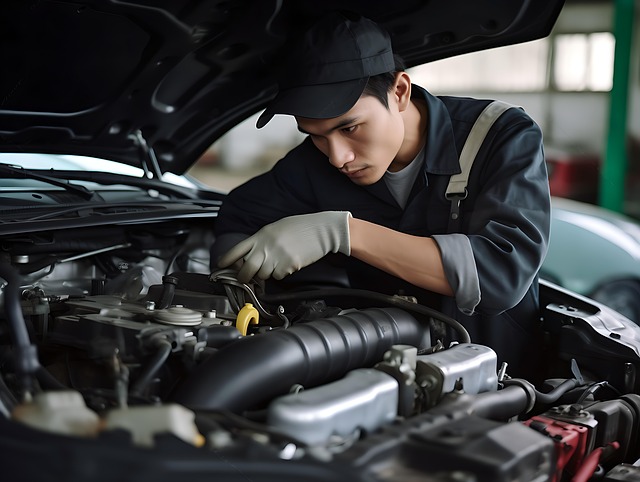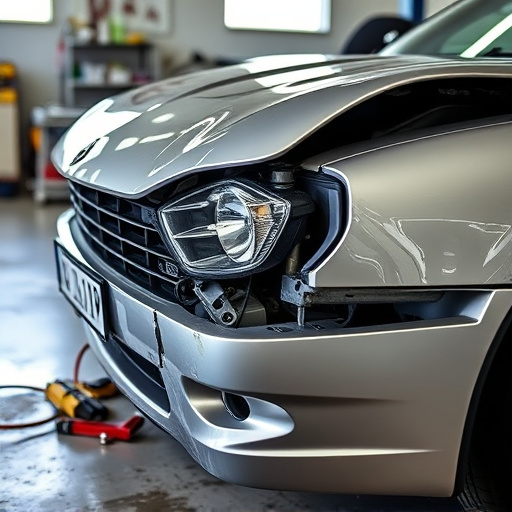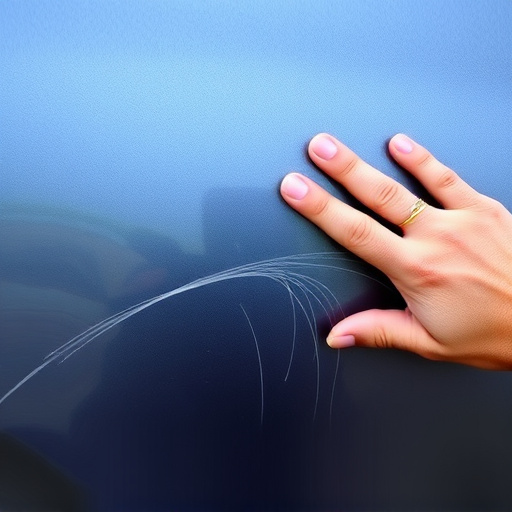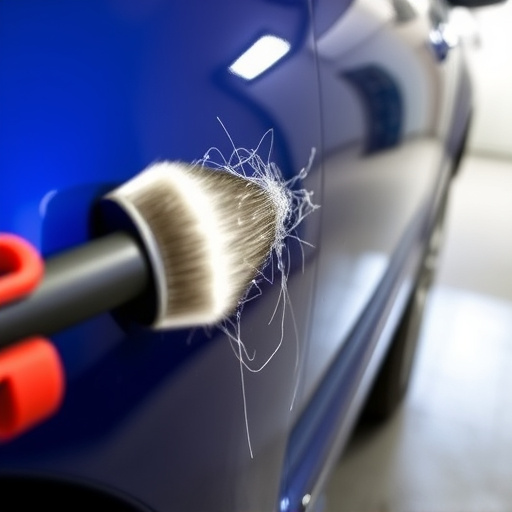The automotive industry is transitioning towards sustainability as consumer environmental awareness grows. Traditional auto body shops are adapting by utilizing recycled and repurposed materials for car damage repairs, reducing waste, energy consumption, and greenhouse gas emissions compared to conventional manufacturing. This shift towards eco-friendly solutions creates a circular economy, minimizes landfil waste, and drives business innovation. Consumers benefit from cost-effective, sustainable auto body shop parts options that also reduce their ecological footprint.
In today’s eco-conscious world, the automotive industry is undergoing a green transformation. The rise of recycled auto body shop parts offers a sustainable solution to reduce environmental impact. This article explores the growing trend of using recycled components in auto body shops, focusing on their environmental benefits and long-term sustainability.
From minimizing waste to lowering carbon footprints, we delve into how these reclaimed parts contribute to a greener future for the industry and consumers alike. Get ready to discover the positive impact of recycled auto body shop parts and their role in shaping a more eco-friendly automotive landscape.
- The Rise of Recycled Auto Body Shop Parts
- Environmental Impact and Sustainability
- Benefits for Consumers and the Industry
The Rise of Recycled Auto Body Shop Parts

The automotive industry is experiencing a significant shift towards sustainability, and at the forefront of this movement are recycled auto body shop parts. As environmental consciousness grows among consumers, so does the demand for eco-friendly vehicle repair services. Traditional automotive body shops are transforming to meet these new expectations, embracing innovative ways to reduce their environmental impact.
This trend is not just a response to public pressure but also a practical solution to an ever-growing issue. Car damage repair using recycled materials offers a more sustainable alternative to the conventional method of manufacturing new auto body shop parts from raw resources. By utilizing reclaimed and repurposed materials, automotive body shops can minimize waste, reduce energy consumption, and lower greenhouse gas emissions associated with traditional production processes.
Environmental Impact and Sustainability

The environmental impact of auto body shop parts is a significant concern in today’s world, where sustainability and reducing waste are at the forefront of many industries. Using recycled auto body shop parts plays a crucial role in mitigating this impact. By utilizing refurbished and repurposed components, such as those from vehicle dent repair and tire services, shops can decrease the demand for new materials and resources required for manufacturing. This simple yet powerful approach helps to lower carbon emissions and conserve natural reserves.
Moreover, adopting sustainable practices in auto collision repair contributes to a circular economy where waste is minimized and resources are reused efficiently. The reduction of scrap metal from old vehicles and parts prevents them from ending up in landfills, thereby preserving the Earth’s landscape. This movement towards eco-friendly solutions not only benefits the environment but also encourages businesses to innovate, offering customers environmentally conscious options without compromising on quality or performance.
Benefits for Consumers and the Industry

For consumers, choosing recycled auto body shop parts offers a sustainable and cost-effective solution for car repairs and restorations. Not only do these parts help reduce environmental waste, but they often come at a lower price point compared to their brand-new counterparts. This makes them an attractive option for budget-conscious individuals looking to minimize their ecological footprint without compromising on quality.
The auto body shop industry also benefits from the use of recycled parts. By incorporating these into their operations, shops can contribute to a circular economy, decreasing demand for raw materials and energy-intensive manufacturing processes. Furthermore, with skilled technicians able to expertly repair and refurbish used parts, such as those offering tire services or dent removal, it becomes possible to extend the lifespan of countless auto components, reducing the overall need for constant production of new ones.
The adoption of recycled auto body shop parts is not only a sustainable practice but also offers significant environmental benefits. By embracing this trend, businesses can reduce waste, conserve natural resources, and lower carbon emissions. Consumers benefit from cost-effective repairs and the knowledge that they are contributing to a greener future. The automotive industry as a whole stands to gain from enhanced sustainability, potentially leading to more eco-friendly practices and a reduced ecological footprint.














